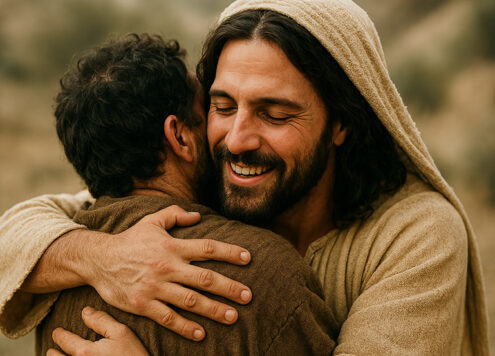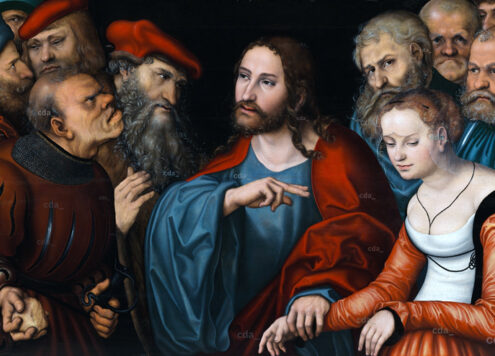In a world of material pursuits, joyful acts of giving are timeless testaments to our faith and humanity. Giving is a necessary part of being human. Parents give to their children, teachers give to their pupils, and genuine communities give towards the common good. The golden rule for giving is: “do unto others what you wish them to do unto you.” Jesus teaches us that giving should permeate every aspect of our lives. This sense of giving extends beyond offering material help, to forgiveness, time, and love. As He instructs in Matthew 18, we must forgive “seventy times seven times” – a powerful metaphor for limitless giving to our fellow man.
Effective giving must flow from a place of joy and trust, transforming both the giver and receiver. When we give joyfully, we enrich ourselves as well as the receiver. Authentic giving emerges not from obligation but from a grateful heart. As “God loves a cheerful giver” (2 Corinthians 9:7), our giving should spring from joy rather than duty. This joy manifests when we give without expectation of return or recognition, when we release our gifts freely, when we embrace giving as opportunities arise, and when we find delight in meeting others’ needs.
When we truly understand that all we have comes from the Creator, we can give generously knowing that God will provide for our needs just as we provide for the needs of others. Our security lies not in material possessions but in trusting in His care. Every act of giving opens channels for God’s blessings to flow. We are merely stewards of resources that ultimately are not ours to hoard but to share. Thus, each act of giving, no matter how small, creates waves of impact that extend far beyond the initial gift. This “ripple effect” manifests in several ways: Recipients of kindness are inspired to be kind to others. Society is strengthened through chains of generosity. Trust and goodwill multiply throughout the community. And the witness of generous giving draws people together.
The concept of “paying it forward” aligns beautifully with this ripple effect, creating a continuous cycle of generosity. This practice involves responding to received blessings by blessing others and creating chains of giving that extend beyond our immediate circle. When “the right hand doesn’t know what the left hand is doing” (Matthew 6:3-4), we ensure that our motives remain pure and focused on serving others. In this way, pride and public recognition don’t corrupt our giving.
We must overcome those barriers to giving such as fear of scarcity, lack of resources, attachment to material security, concern about being taken advantage of, or the narcissistic desire for recognition or praise. We can surmount these obstacles by taking small, daily steps in giving, focusing on the need of the recipient rather than our own concerns. The story of the widow’s mite teaches us a profound lesson: genuine giving is measured not by the amount given, but by the generosity it represents. Like the widow who gave only a few coins (Mark 12:42), we are called to give according to our ability. It doesn’t take much: A smile, an encouraging word, a hand of welcome to a stranger, a helping hand to a neighbor in need, time spent volunteering at a homeless shelter or at a hospital, giving time and treasure to a worthy cause. The list goes on and on for the harvest of giving is great.
The call to give is universal, transcending religious boundaries but finding its deepest expression in the example of Christ. As His followers, we are invited to make giving a way of life, understanding that it is better to give than to receive (Acts 20:35).
May we all grow in this grace, remembering that every act of giving, no matter how small, ripples through the corridors of time all the way to eternity.
—Fr. Hugh Duffy, Ph.D.











3 Comments
Tom Walsh
Thank you Fr. Hugh for taking the time to elaborate on the Joy of Giving. It is very much appreciated. It is a very enlightening and thought provoking post which is achievable I believe if people are willing to do it. I also believe it would make the lives of the giver more spiritually and personally rewarding and equally the recipient. Please God, may President Trump be genuine in his giving. 🙏
Bartholomew Okere
Fr.Duffy, another wk of a reflection that focuses on what God the creator started by sending us His Son J/Christ as a gift to the world which His Son continued unto the cross of Calvary.Giving as you pointed out isn’t easy for some people but it requires the bravery and love of Christ who went about doing good. Blessed is the hand that giveth and the hand that receivth says Lucky Dube of S/Af. Tx
Hugh Duffy
The spirit and joy of giving, Tom and Bartholomew, is a grace from above, and cannot be imposed. The way of the world is different because it is self-centered. The best we can do is act on this grace, and share it always.